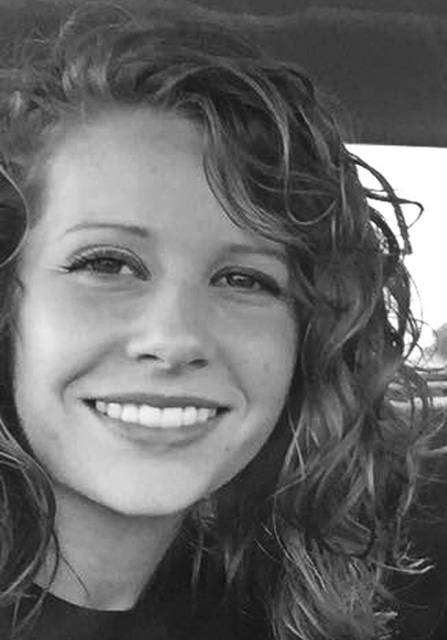Throughout October Judith Cooley from the Buffalo Trace Women’s Crisis Center has discussed the issue of domestic violence in detail, with the lesser known types of abuse coming to light. Today, however, we look to the future. At the Women’s Crisis Center, we believe in a future without domestic violence. We also believe in a future where Maysville, Kentucky will be a model for the entire nation on how to recognize and prevent further violence.
To see a true change in society will be difficult but not impossible. If each member of the community could foster empathy, cultivate respect for every person’s dignity, and resolve to take a stand, when possible, we would see all crimes decrease, not just sexual assaults, rapes, and incidents of domestic violence. Society is not perfect, but we feel a change for the good is on the brink of possibility. If we can generate enough discussion surrounding the issues of domestic violence, sexual assault, and rape, then we can reestablish our societal norm. As domestic violence has almost been taboo to mention, we aim to turn this norm on its end, and establish that acts of domestic violence are taboo, rather than conversation!
The Green Dot Initiative is a violence prevention model that was created by the University of Kentucky as campus dating violence prevention program. The Women’s Crisis Center has adopted it and engineered it to prevent any type of violence. The concept of Green Dot might seem elusive because there are bystander trainings. On the contrary, Green Dot is simply a decision to take the safety of yourself and others seriously.
Bystander Training gives you 3 D’s that will prepare you for safe social intervention, if you happen to witness acts of domestic violence. Depending on your personality, there is an intervention style for you. The first D is direct. This is for someone who doesn’t mind confrontation. The bystander may say, “It’s not okay to treat someone like that.”
The second D is distract. This bystander doesn’t feel comfortable calling attention to the negative behavior. During an incident, the bystander may pull out receipt and ask, “did one of you drop this?” this allows for the aggression to dissipate. The third D is delegate. This is when a bystander doesn’t feel safe getting involved at all. The bystander might go to the service desk and tell a manager about an issue or maybe the police need to be called-a delegator will call.
Training doesn’t require major time commitments, oaths, or personality changes. What the training does require is self-awareness and a vision to see the community you live in as a safer place. Green Dot is a fairly new concept but is gaining attention quickly. The concept is simple- step up, and don’t expect someone else to do it.
On Oct. 24 , WCC’s Executive Director, Christy Burch, and BT WCC’s Director, Melissa Greenwell, were invited by the U.S. Department of Health and Human Services and spoke about Making Maysville a Green Dot City Initiative on a national webinar. We have Green Dot educators visiting many high schools around Kentucky and Greater Cincinnati in hopes of instilling a sense of personal and social responsibility in our younger generations.
A prepared mind has a backup plan. If and when, prevention breaks down, there needs to a trusted entity, in addition to the Women’s Crisis Center, to call on for help in an emergency. The Maysville Police Department and the Mason County Sheriff’s Office are both full of trained men and women ready to assist victims. For some time there has been mistrust between DV victims and police officers. It is our hope that explaining the process of handling a DV call from an officer’s perspective can foster a community of trust.
What is it like to be an officer responding to a domestic violence call? A DV call is high priority, so officers respond as quickly as possible. Two officers are dispatched in order to manage a chaotic situation. DV calls can become very dangerous for the officer as the abuser recognizes the loss control of the situation. According to Lexington Police Department’s Domestic Violence Policy (lexingtonky.gov), while on the call an officer must “de-escalate violent situations, protect adult and child victims, prevent officer injury, reduce repeat calls, enforce the law against violators, (and) facilitate prosecution.”
Officers are hyper vigilant, mentally accessing everything from sounds in the distance to noticing body language of the victim and abuser, and noting the disheveled state of the scene looking for clues. An officer works to diffuse a situation quickly which might make him appear cold. An officer documents injuries which might make him seem detached. An officer questions abuser and victim alike which might make him seem insensitive. None of these assumptions are true. Officers have taken an oath to serve and protect. The way they protect is by taking control of the situation. Please do not mistake their authoritative manner as detached or uncaring because they do care. Officers would not be in their line of work if they didn’t believe in protection and justice. The Women’s Crisis Center, Maysville Police Department, and Mason County Sheriff’s Office have a working relationship built on mutual respect. We aim to prevent domestic violence, but if the need arises our peace officers are ready to protect.
As we end this mini-series, we hope that the DV discussion continues. We know hearing survivors’ stories is empowering and therapeutic. The healing process for a victim-survivor of domestic violence is long, and no two recoveries are the same. If we, as a society, can work to eliminate trauma reminders, promise a safer community by fostering equality for all members, and set an example for the nation, is it not our duty and our distinct honor?
The last tip from The National Domestic Violence Hotline is, “Seven. Remember that you cannot ‘rescue’ them.” This is a hard concept, but it needs to be grasped. Whether you just learn about an abusive situation or you have known someone who has been surviving abuse for years, it is not your situation therefore it is not your choice. You can do your best to be supportive, but you cannot make decisions for a victim-survivor. The victim-survivors are the experts of their situations. The survivor knows how to navigate the relationship. “On average a woman will leave an abusive relationship seven times before she leaves for good” according to The National Domestic Violence Hotline. In the midst of whatever stage the survivors are in, they need your support.
As always, to survivors and supporters alike, “you must be the change you wish to see in the world.” Mahatma Gandhi






